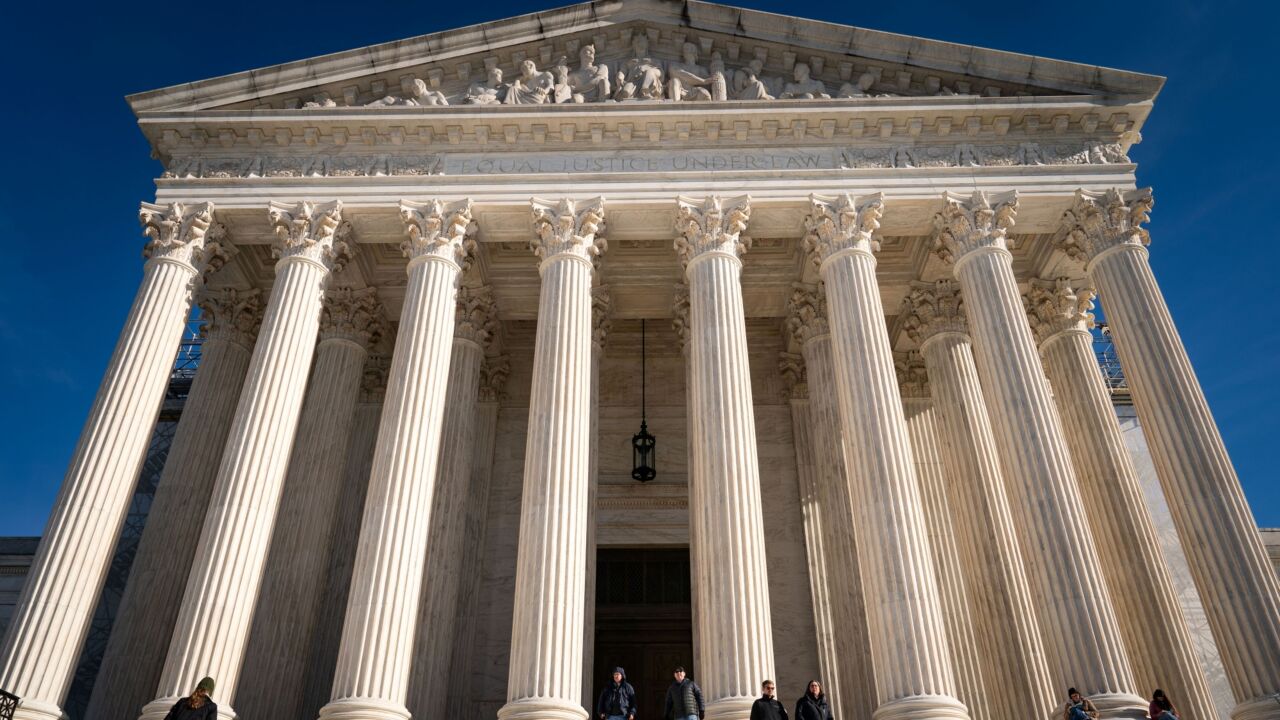President-elect Donald Trump says renewing tax cuts would turbo-charge investment and boost U.S. economic growth — a pledge that helped propel him to election victory in November.
But new
Most of the measures up for renewal largely benefit individuals and households, including lower income tax rates and an expanded child tax credit. While those are an easy sell to voters, economists caution on the scale of economic dividend they generate. The bigger spur for investment, they say, would be cuts for corporations.
The business tax breaks in the 2017 law Trump signed in his first term aren't up for renewal. While he vowed to donors and business leaders gathered at the New York Stock Exchange on Thursday that he'd lower the corporate rate to 15%, that pledge is seen as a potentially perilous move with both voters and some Republicans disdainful of more aid for big business.
The CRFB based its findings on an
Those bigger revenues would mean less public borrowing, in turn offering a spur to private investment. In the CBO's analysis, that would help make up for a modest reduction in the labor force from the expiration of the tax cuts. "On net, those two effects largely offset each other, resulting in very small changes to gross domestic product," the CBO said.
That CBO analysis implies that renewing the tax cuts would also have a similar, modest net effect on growth, in the CRFB's thinking.
Spending restraint?
Some other models, including those from the Tax Foundation and the Penn-Wharton Budget Model, have shown small amounts of positive economic feedback from renewing the tax cuts — but nowhere near enough to cover the cost of extending the tax cuts, which the CBO projects would amount to $4.6 trillion over a decade.
Still, the outlook from both the CRFB and CBO adds to doubts about the ultimate economic gains, and underscores the pressure lawmakers will be under to find savings to fund the tax cuts.
Trump has touted swingeing spending cuts, through a proposed Department of Government Efficiency — a nonprofit group to be run by billionaire Elon Musk and entrepreneur Vivek Ramaswamy looking to come up with ideas for deep savings in public outlays. In addition, the president-elect has talked of imposing a tariff of 10% to 20% on all imported goods plus 60% on Chinese products, and promoted that as an offset for tax cuts.
That comes as the fiscal backdrop continues to deteriorate.
The U.S. budget deficit
Since then, new figures show the U.S. ran a $624 billion deficit in the first two months of the current fiscal year, equating to borrowing of $10 billion per day — or $2.1 trillion on a rolling basis over the past 12 months,
"That's an astonishing sum especially when considering the huge challenges ahead," according to Maya MacGuineas, president of the CRFB. "If we intend to get serious about fiscal responsibility, we might as well start now."
GOP priorities
Extending the tax cuts are only one part of Trump's fiscal platform, which includes plans to slash other taxes across the board — such as those on tips and overtime pay, along with the corporate-rate reduction.
Investors are watching closely for any signs of emerging fiscal stress. While Wall Street economists say extending the tax cuts would be positive for growth, they caution there are other dynamics at play too.
"It would be crucial for Trump 2.0 and Congress to complement the tax cuts with spending cuts," said Stephen Jen, chief executive of Eurizon SLJ Capital. "It's not just about tax cuts, it should be about a small government, which means lower spending."
That means there's less room for broader tax easing given the worsening fiscal outlook, according to David Seif, chief economist for developed markets at Nomura.
"If I'm wrong and there are further tax cuts, I doubt that there will truly be many pay-fors. I would instead expect reconciliation instructions to allow for a larger deficit," he said, referring to the budget reconciliation process that Republicans are planning to use to pass the tax legislation, which will allow them to bypass the need for any Democratic support.
However the debate plays out, the underlying economic landscape of lingering inflation, a surging deficit and potential for slower economic growth all stack up to a very different starting point to the last time major tax cuts were debated. Martha Gimbel, executive director of The Budget Lab at Yale and a former White House economist under President Joe Biden, said that makes for an uncertain outcome.
"Policymakers need to remember that 2024 is not 2017," she said. "Similar actions could see very different results."






